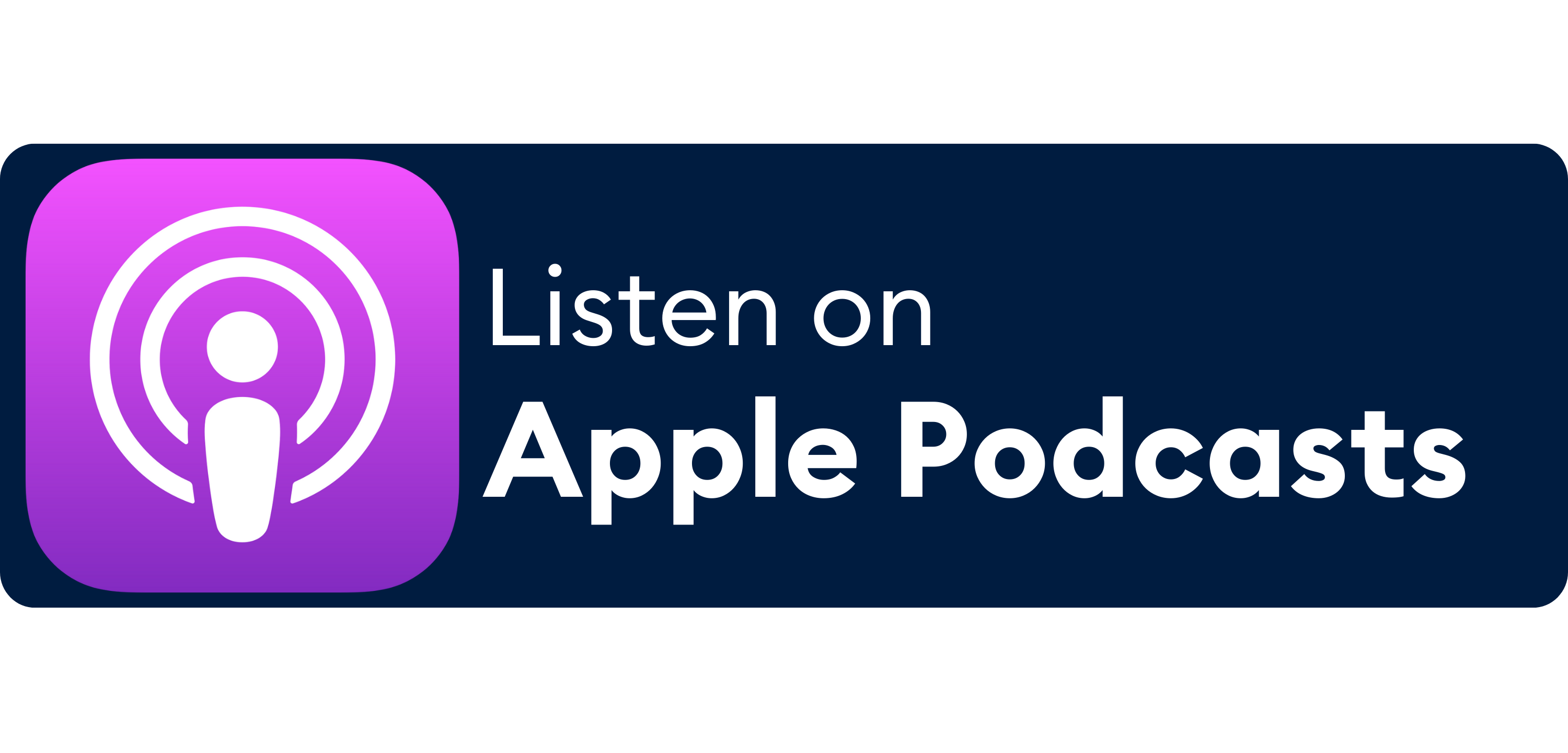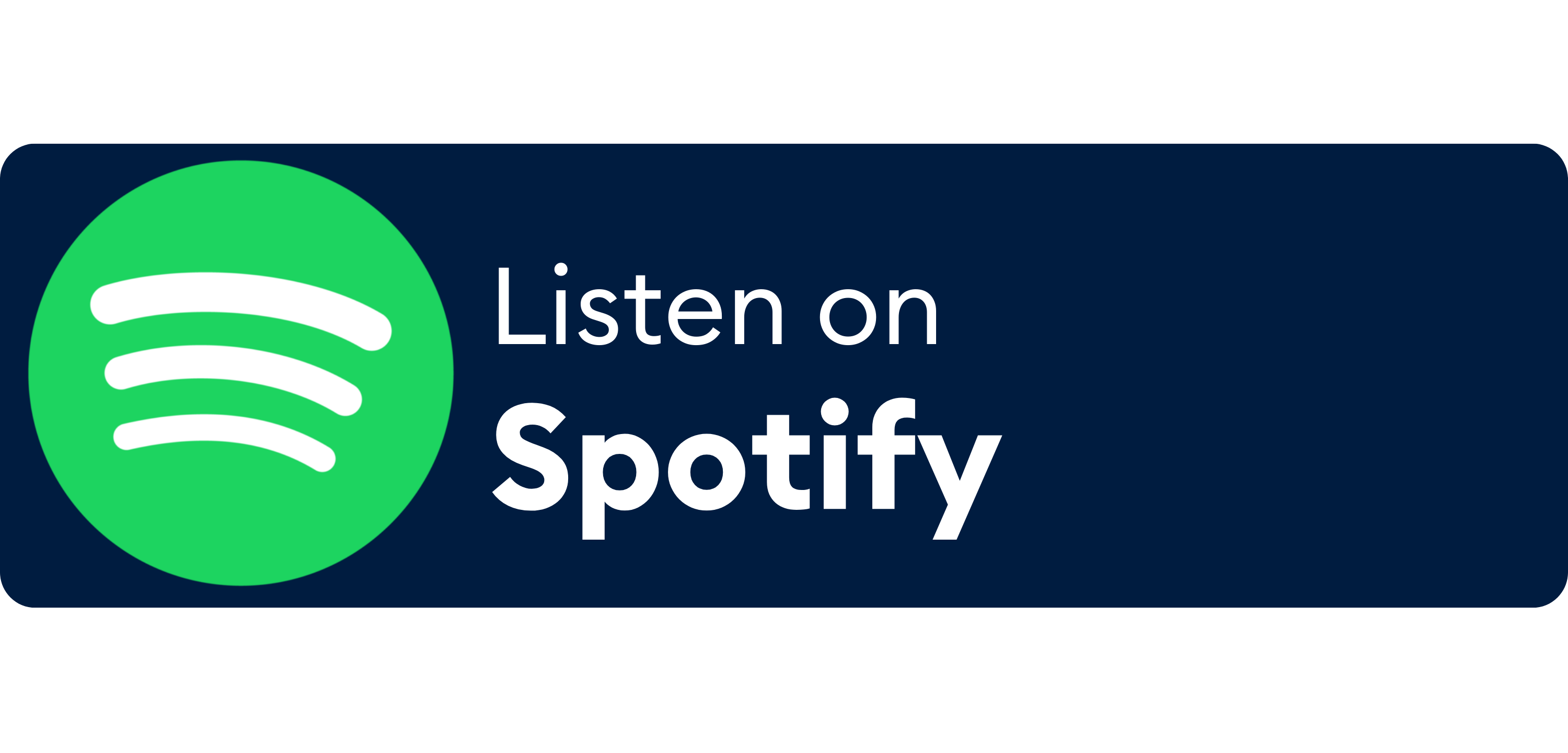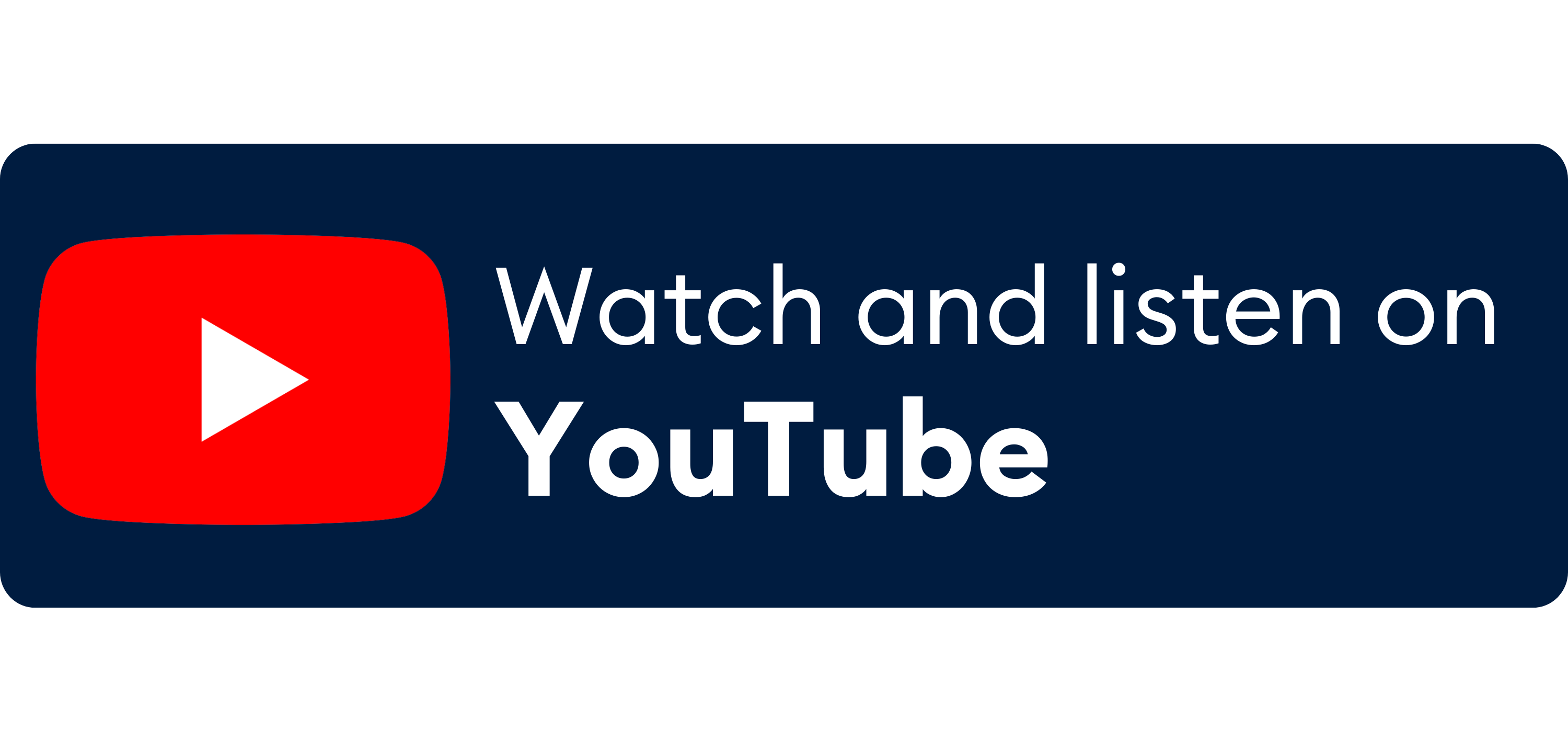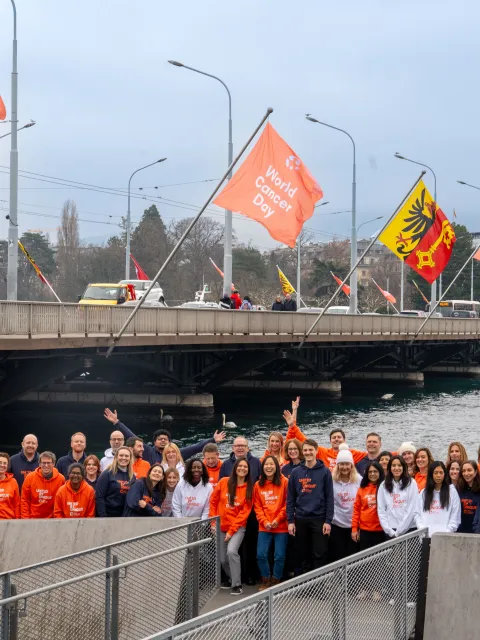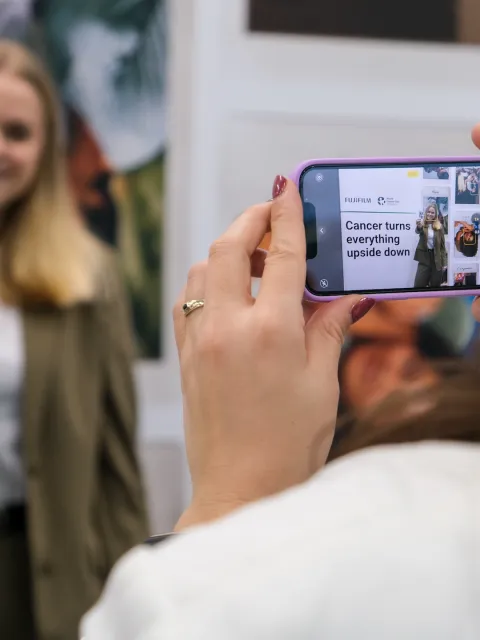
Marking World Cancer Day on 4 February and the campaign theme “Close The Care Gap”, Cary Adams speaks with Deputy Commissioner Johanne Morne, who leads the newly formed Office of Health Equity and Human Rights at the New York State Department of Health in the US, about the barriers to accessing health services and cancer care and how they can be addressed
Deputy Commissioner Johanne Morne at the NY State Department of Health is among a growing number of public officials in the US and around the world with a dedicated role in improving access to care for underserved populations.
Half the world’s population lacks access to the full range of essential health services. When it comes to cancer, many are denied basic care, even though we live in a time of awe-inspiring advancements in cancer prevention, diagnosis and treatment.
"I think that at times, when we are privileged, we make an assumption that others have the same level of resources that we each do. And that is not the case. If we really want to address these inequities, we have to be honest about what stands in the way of individuals who do not have these same privileges. If we're looking at inequities that are impacting black and brown individuals, then let's have an honest dialogue about structural racism. Let's have honest dialogue about other forms of racism and stigma and discrimination that prevent people from even engaging, let alone being able to remain in systems of care."
– Johanne Morne, Deputy Commissioner, Office of Health Equity and Human Rights, New York State Department of Health
The social determinants of health – where people live, whom they love, their gender, age, race, ethnicity or mental and physical capacities. their level of education or income – represent the many factors that can increase a person's chances of developing cancer, receive a timely diagnosis and access affordable treatment.
Marking World Cancer Day on 4 February and the campaign theme “Close The Care Gap”, Cary Adams speaks with Deputy Commissioner Johanne Morne, who leads the newly formed Office of Health Equity and Human Rights at the New York State Department of Health in the US, about these barriers to accessing health services and cancer care and how they can be addressed.
"We have to remember at the core that it's our right to receive the support that's necessary and the medicine that's necessary and the access that's necessary. It's just that we have to figure out how to meaningfully address the barriers."
– Johanne Morne, Deputy Commissioner, Office of Health Equity and Human Rights, New York State Department of Health
See podcast transcript below
Listen on: Spotify | Stitcher | Apple Podcasts | Amazon Music | Audible | Deezer
Get notified of new podcasts by email
Podcast transcript
Cary Adams: Welcome to Let's Talk Cancer. My name is Cary Adams, and I'm the Chief Executive Officer of the Union for International Cancer Control, based in Geneva, Switzerland. Half the world's population lacks access to the full range of essential health services when it comes to cancer. Many are denied basic care, even though we live in a time of awe inspiring advances in cancer prevention, diagnostics and treatment. Where you live. Who you are. Where you're from. What you do. Who you love. These are called the social determinants of health, and they represent the many factors that can hinder your ability to reduce your chances of developing cancer. Get access to timely diagnosis and access to affordable treatment. With us today to talk about this is Deputy Commissioner Joanne Morn, who leads the newly formed Office of Health Equity and Human Rights at the New York State Department of Health in the USA. Joanne It's a real pleasure talking to you. Thank you very much for giving us your time today.
Johanne Morne: Well, thank you.
Cary Adams: Having an office which is specifically dedicated to the issue of diversity, inclusion and equity is something that's starting a pick up around other countries and around your country particularly. So how do you view this development? Is there real seriousness behind these appointments? Do you think.
Johanne Morne: Diversity, equity and inclusion across our workforce has to be a priority. While I have to say, I did question initially what people's intents were by moving forward with these conversations and these titles, I have now come to a place where I'm understanding for our own selves here in New York State what it is that we're trying to do. And I'm going with the belief that that is also what others are trying to do. We're trying to centralise and prioritise, through namesake, the opportunities for us to make sure that everything we do has health equity at its core and a recognition that if we only continue to engage in the activities we have historically engaged in, we are not going to get to a place of reducing disparities and we're going to continue in this cycle. We won't see change. So we have to be willing to be innovative. We have to be willing to understand that each individual presents with a very unique circumstance, and we have to be willing to take the risk of, yes, utilising evidence based initiatives that have shown with consistency that they can result in sustainable change, but also take the risk of looking at grassroots opportunities, recognising that community based organisations and community stakeholders have just as much insight and understanding of how we can impact change moving forward in 2022.
Cary Adams: The UICC conducted a strategic review looking at what our priorities should be over the next 10-15 years, and in equity leapt out in practically every conversation that we had with individuals around the world and our members and our Board. But what sort of inequities worry you in New York specifically? What's preventing people getting the health care that they they deserve?
Johanne Morne: New York has seen and continues to see such significant inequities. And I don't want to say that we're unique. I think across this nation we are faced, in public health, with inequities that absolutely always underscore the the work that we have to continue to do as it relates to individuals, particularly black and brown individuals, as it relates to women and as it relates to many of the other vulnerable communities in populations that are in our state. It seems as though every time we have an emerging issue, there is a bit of surprise as to the inequities because there's an assumption that there is adequate access as well as adequate care for everyone. And I think that the most recent emerging issue being COVID proved to us that that isn't necessarily the case and that having built something is one step. Access is a very nuanced conversation that isn't just about being able to walk through the door. It's about every step that has to be taken by an individual from their starting point to getting into a health care system.
Cary Adams: So let me use the World Cancer Day theme then. So what are you doing in New York to close the care gap in terms of those disparities, inequities which you've identified?
Johanne Morne: So I think one of the first things that we're doing is that we're having an honest dialogue, and that honest dialogue is happening with community stakeholders, many of whom have lived experience. I think the opportunity to partner and to learn from individuals with lived experience and understanding what it is we need to do better, not only in the development of policy but in the framework of our health care systems, is significant to how we address and how we move away from the disparities of people experience. We have to come to an expectation that we want to impact and and achieve sustainable change. And for me, you know, my my career is such I've worked both within community based organisations and in the last 15 years within state government. And I certainly applaud the prioritisation as well as a funding allocation that that occurs for many of our public health priorities. That said, I question whether five year funding cycles are what will result in sustainable change, and I suggest that we look at the funding that we have available to us and determine how we can create circumstances for individuals to consistently have access to the support that is needed.
You know, some of the barriers, and certainly when we talk about cancer: First of all, the fear of testing. And if we were to talk about women as an example, and I'll use my own self as an example, I'm a breast cancer survivor and the first step is facing the fear of going and getting the mammogram. So imagine if I have the fear of getting the mammogram, and then I come to find out that the only place for me to go to get the mammogram is an hour's drive away. And I have no vehicle, nor do I have the additional funding to hire a driver or take a bus or a train or whatever the case may be. Here, you start to see where the gaps are. That will encourage me to sit in my fear and not engage in what one would argue is accessible, in this case screening.
Cary Adams: And the other fear, of course, is what will be the financial consequences if you do have cancer in terms of your job loss, in terms of the insurance, in terms of the family and everything else, so that that barrier to entering the system, when you have a concern about a lump in your breast or whatever it is, is really a major issue in terms of all the consequences. If it's positive and there is actually a cancer that needs to be treated.
Johanne Morne: Absolutely. And, you know, one of the things that surprised me when I started to when I received my diagnosis and I started engaging in oncology and cancer care was you would go to the clinic and on the walls you would see these announcements of very localised neighbours who were willing to assist you, offering rides for treatment, offering assistance and maintaining one's household, offering meals to be cooked. And really what struck me was that when you receive a diagnosis, in my case, my experience is through cancer, it truly drives community. So in my opinion, we have to take that. Opportunity and build on it by providing that with the resources that that can allow for more people to be able to engage and for us to make it a routine part of what people will experience as far as the support they need during that window of time where screening, treatment and care are happening.
Cary Adams: It's incredible. I meet many civil society organisations who are members of UICC around the world, and it's often forgotten the fundamental role they play in the health system and that they provide that ongoing journey support for patients from diagnosis all the way through to successful treatment. And it's interesting that you said that, because I think a lot of people do not value necessarily the the informal networks of communities that support people through their journey. It sounds like you had access to a lot of people who are prepared to help voluntarily.
Johanne Morne: And I'm I'm privileged in that I have my own support system. And so that gives me the opportunity to allow those resources to be available to someone who does not. And I, I am very conscious in my word, selection of saying I'm privileged because I think that at times when we are privileged, we often mistake or make an assumption that others have the same level of resources independently that we each do. And that is not the case. If we really want to address these inequities, we have to be honest about what stands in the way of individuals who do not have these same privileges. We have to be very specific that if we're looking at inequities that really are impacting black and brown individuals, then let's have honest dialogue about structural racism. Let's have honest dialogue about other forms of racism and stigma and discrimination that prevent people from even engaging, let alone being able to remain in systems of care. You know, the fears that we experience and the anxiety that is provoked when it comes to our health care is real and it's significant. And in my opinion, when we are considering our health care systems, we have to take that emotional aspect into account in addition to the tangible things that people need, such as, again, transportation, housing.
Johanne Morne: Can you imagine if you're going through chemo and at the end of that, that series or that session you don't have a safe, stable or supportive house or a home to go back to? These are all real things that that cause people to make decisions. And I am a huge believer that people are the expert of their own situation. You may have language access issues, you may not have the money for co-pays and other medications that are automatically written for you, regardless of whether or not there's knowledge as to whether you can afford them. Right? If we want to address really address inequities, we have to change those patterns and we have to start asking questions about when you walk out of this health care facility door, tell me if you'll be able to do A, B, C and D. It's about having the respect for people to be able to know what they feel able and ready to do. And it's our responsibility to continue to provide education and awareness so that people know what's available.
Cary Adams: I agree entirely. I have the privilege of sitting on the board of the NCD alliance, who work very closely with the World Health Organization and the engagement of people living with NCDs – not just cancer, but diabetes, heart disease – in the decisions that governments take about their journey through treatment and care is a fundamental driver of change, hopefully around the world. I mean, you're a survivor, so you're already in the middle of it. You've experienced it. But, do you have any proactive plans to engage more people who have an NCD, living with an NCD, in the decision processes, which your government is taking?
Johanne Morne: If I were to use HIV as an example, some may be familiar, but for those who are not, New York State declared the opportunity and ability to end the epidemic in 2015, and that declaration was due to the advocacy and the visioning of community stakeholders that invited government officials to the table to have the conversation of how the state is well positioned to move forward, based on the achievements that had been made since the eighties, 1980s. And we came together in partnership, and a blueprint was developed by individuals, community stakeholders who were representative of different areas of the state, with lived experience and with professional experience. And that blueprint has guided us, resulting in over 35% decrease in new HIV diagnosis from 2015 to today.
What we are doing is continuing to find opportunities like that to ensure that there is community input in recommendations as well as in holding us accountable. I think it's one thing to ask people to come together to provide recommendations that can be considered. I think it's something else to ensure that there are consistent ongoing opportunities for community stakeholders to have voice, to know what the outcomes are of their recommendations, and to ask us the hard questions of why and why not. Because whether you sit in government, whether you sit in community, wherever you sit, in which you have decision making power, it is important to create those avenues to be held accountable.
Cary Adams: I will quote you regularly as I travel the world. It's interesting that what you've achieved there in HIV/Aids obviously impacts cancer as well, because a woman with HIV/AIDS has an eight times likelihood of developing cervical cancer in our lifetime. So there are knock-on effects of actually addressing one disease on others. You mentioned stigma earlier, stigma in terms of ethnicity, stigma as an agenda. I'd say stigma in terms of age, all sorts of stigmas. There's a stigma associated with having cancer. Is there something that you experience personally or is it something that you are aware of and what are your thoughts about it?
Johanne Morne: So there's a tremendous stigma with cancer. There were so many times in which I disclosed my experience of being diagnosed. And the first question that I was asked was, did you smoke? I hear this a lot with many other people, whether it's related to cancer, whether it's related to cardiac issues. I always hear this question of did you smoke? We're socialised that we want to understand the why. Right? And and we want to get to the core. And that's relevant. I am a big believer in data. I am a big believer in working with individuals who are diagnosed in order for us to better understand and learn, so that hopefully we can continue to make medical advancements. Right? But the stigma that comes with cancer is that there's always this sense – and I don't know if it comes from fear of other individuals who haven't had the experience, so they're trying to determine, you know, well, they did X and I did it, so I'm less likely to get cancer. For me, that always really stood out because, you know, when you do get a cancer diagnosis, like many things you do think about, Well, what role did I play in this? What should I have done differently? It's a period where, whether you're the most confident person in the room or not, you ask these questions because at the end of the day, you really don't know the answer. So all you can do is is think about things that may have contributed and work in your life, as you're able, to not engage in those things. So that's one of my examples as it relates to stigma.
Cary Adams: John, do you think there's anything particular that what you've just said applies to cancer as opposed to other illnesses or diseases?
Johanne Morne: What I will say about cancer, and I did not understand this when I was diagnosed, is that I think that for people who have never had the experience, there is this thinking that once you're in remission, once you say you're cancer-free, that the journey has been completed. And my experience with cancer is that, this is a gift that keeps giving. I never understood that a diagnosis I received in 2015, that in 2022 I would still be experiencing new things as a result of that diagnosis, even though I've been cancer free since 2016. And I think that's very important for people to understand. Again, we're socialised, we like a beginning and we like an end, right? And so it's easier to understand like, well, if the main issue, the main crisis is the cancer, then if your cancer-free, you're good. And of course, of course, you celebrate those who have treatment experience. You come out, you ring the bell, you do this, you do that. It's a point in time that you'll never forget. But I also say all the time, we don't know what people live with. And as a cancer survivor, and I've talked to many other cancer survivors who say the same thing, we had no clue what we were getting into.
Cary Adams: That's very true. I did a podcast recently with a gentleman who's had cancer eight times and is still surviving all different cancers. Extraordinary story. Quite unusual. But you're right, once you've had cancer, it's always in the back of your mind. I mean, it's just the way it is. And many cancer survivors consider themselves to be, you know, on their journey still. And it's something which we have to be very cognisant of. I noticed that your department is called the Office of Equity and Human Rights. So what is the connection between health equity, human rights and cancer? What is the human rights angle on this?
Johanne Morne: The first thing I'll say is that it's important to understand and to believe that health care and health care access is a human right. We face so many crises. And not all of which are related to health care. And so at times it can feel very overwhelming. And also it divides our resources. And so we have to remember, just at our core, what are our human rights? And how do we value and respect each other as human beings? You know, we have to remember at the core that it's our right to receive the support that's necessary and the medicine that's necessary and the access that's necessary. It's just that we have to figure out how to meaningfully address the barriers.
Cary Adams: I think you articulate that very well. I think there's a right for everyone to have access and there's a duty upon all of us that can facilitate that to make it happen. And it strikes me from what you've been saying, that you take that duty very seriously in your role as a cancer survivor, as well as your role within the government in New York. I've been to New York many times. I count myself lucky. There's hundreds of different ethnicities, their colours, noises, everything. It's an incredible – it's like a microcosm of the whole world in one place. So what you can achieve there hopefully would inspire other parts of the world. So what would be your message as a New Yorker, born and working in New York, to the rest of the world, about what needs to be done from public authorities to close the care gap around the world on World Cancer Day?
Johanne Morne: I would say to the world that we have an opportunity in front of us that when we sit down and we look at the news and we look at the media, we oftentimes are faced with many tragedies. And it is easy to get caught up in those tragedies. It is easy to become overwhelmed with what stands in front of us. It is easy to say that we're doing the best that we can. But I want to say to the world, it's not enough. We have to take the experience of the tragedies we see. We have to translate that into creating spaces where intentional conversations can take place for the purpose of planning and the purpose of developing systems of care that will treat people with respect, with equality, and with a desire to improve human life and the health of the people that we serve. I often say when I talk about people we serve, I say the people that we serve and the people that we love. Because sometimes it's helpful to understand that we're not talking about other people. We're talking about the people who are oftentimes ourselves and truly the family and the friends that we love.
Cary Adams: I agree entirely. The mark of a great society is how it treats its individuals when they are very vulnerable. And there's nothing worse than being vulnerable when you have a health issue. Johanne, it's been lovely talking to you and I really appreciate all the great work you're doing.
Johanne Morne: I thank you and I thank you for the opportunity to join you today. But most importantly, I thank you for the opportunity that you're offering to every single person who listens to the podcast. Education awareness and the ability to know that none of us are alone. That is key to helping us face our fears. So thank you for the tremendous, tremendous work that you're doing.
Cary Adams: If you found this episode of Let's Talk Cancer interesting and stimulating, please leave us a review and follow us on Apple Podcasts or Spotify. And don't forget, join the World Cancer Day campaign on February the fourth.
Last update
Tuesday 05 September 2023